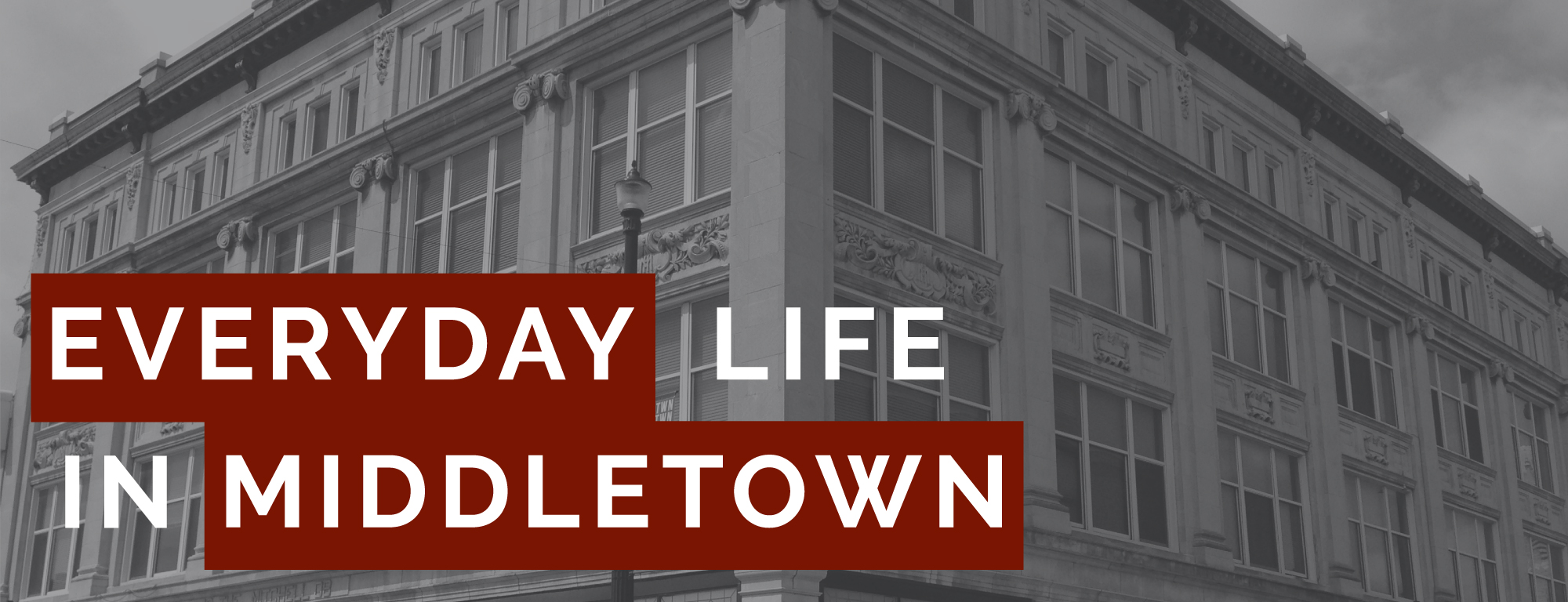Editor’s note; This is the second of three blog posts applying concepts from Lauren Berlant’s Cruel Optimism to Everyday Life in Middletown writings on the pandemic.
Last week, we talked about literary and cultural critic Lauren Berlant’s concept of “social genres” or “genres of event”: the idea that everyday moods, interactions, dynamics, and understandings fall into genres and have conventions.
Berlant argued that since the 2008 financial collapse, economic precarity has for many Americans undermined the viability of the old genres—upward mobility, self-actualization, visions of the good life—leaving us in a new, unstable landscape in which we cling to the old stories, despite evidence that they won’t pan out, or feel around for new ones. We find ourselves in a place where the “relation of persons and worlds is sensed to be changing but the rules for habitation and the genres of storytelling about it are unstable, in chaos” (Cruel Optimism 8). We are left “managing simultaneous, incoherent narratives of what’s going on or what seems possible and blocked in personal/collective life” (4).
We have witnessed this generic pressure and instability in the writing Everyday Life in Middletown volunteers have produced during the pandemic.
Ordinarily, our day diaries show a focus on the immediate and short-term future—this afternoon’s meeting, this weekend’s fun, the upcoming vacation—with periodic glimpses of broader time frames, of the larger framework of past and future that make sense of the present.
In contrast, our contributors’ pandemic writing frequently uses a marked “before and after” structure. In Berlant’s terms, we might look at this trope as an alternate, improvised narrative convention to the more standard time frame, in which the diarist draws clean lines between the past, present, and future.
In one January diary, the phrase “A year ago,” becomes a refrain in a litany of before-and-after comparisons. It emerges with apparent spontaneity in the midst of a paragraph before structuring a series of subsequent paragraphs:
“As I review the calendar I laugh. One year ago, I would have rejoiced at having such a light week. I’ll be home every night for dinner! All five of us will have dinner every night together this week. A year ago, that rarely happened. We may have had two nights a week with all of us together.
“A year ago, staying home for New Year’s would have made me sad…. A year ago, we bounced from one holiday party to the next….A year ago, we would have spent time planning our summer vacation as a family.”
Such narrative improvisations are traces, in writing, of pressures felt in everyday living and the on-the-fly adjustments we make to them.
The writer above discerns positive results of pandemic disruption and views her life with relative equanimity– “It was a hard year…. I read this morning that someone, somewhere would gladly take my problems and call them a blessing. I need this painted on a wall or tattooed on my arm.”
By contrast, a single graduate student, living alone in a small apartment and with a less assured future, sees the before-and-after in more drastic terms. Having settled into a regular routine of classes, meetings, work hours, and socialization before the pandemic, she now finds herself adrift in daily time, with all of her classes and professional responsibilities moved online and no external barriers to structure her day: “I roll out of bed whenever it happens, usually much later than I prefer….I’ve found myself pulling all-nighters or staying up at least until sunrise and crashing until well after noon, getting my work done in the odd hours when most of the world is asleep.”
Thinking of the future provokes genuine anxiety attacks, she reports, and the long-term future looks bleak, prompting a leap towards escape and gallows humor:
“We’ll have a recession that I’ll be part of once I graduate into unemployment. The government will learn nothing from this in the same way that it has never learned from any of its mistakes (yes, I’m exaggerating, I know). People will continue to deride minimum wage workers–you know, the only ones currently keeping the country moving at this point? In an effort to stop being so negative, I at least convinced a number of friends and family to watch some really good Netflix shows I’ve been suggesting for a while, so…I’m calling that a win for all of humanity.”
When EDLM writers intersperse linear autobiographical narrative with the “before-and-after” trope during the pandemic, Berlant’s model would suggest that they are importing an alternate cultural story because the upset of the present and the partial erasure of the future makes the usual conventions of autobiography awkward or untenable.
In typical life-writing, the past is marked by key, transformative experiences with permanent impact; in many pandemic writings, the present is viewed as a point of transformation or suspension with uncertain connections to the future.
“Time feels suspended,” one volunteer wrote in our most recent directive. “There are decisions to be made about the future that cannot be made until we know when we can move freely again.”
Another wrote in a diary last May: “As I drifted off, I thought about how it feels as if we’re just marking time, like a prisoner scratching off the days of his sentence on a wall. …The trouble is, we don’t know whether we just have to endure or, more likely, watch it escalate into a bigger crisis, with more ‘needless suffering and death.’”
If autobiography and its narrative of personal development is ordinarily the default mode of the diary, the pandemic diary’s underlying genre may be dystopian fiction, where the past is a longed-for or unrecoverable “before,” the present a transformed and hard-to-navigate “after,” and the future disconcertingly unknowable.
Next week, in our final blog post in this series, we’ll look more closely at two writers as they find ways to describe the strangeness of this moment and to look forward.

